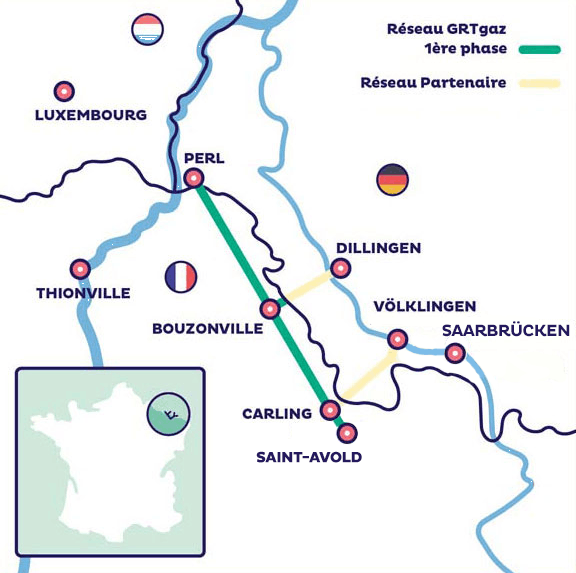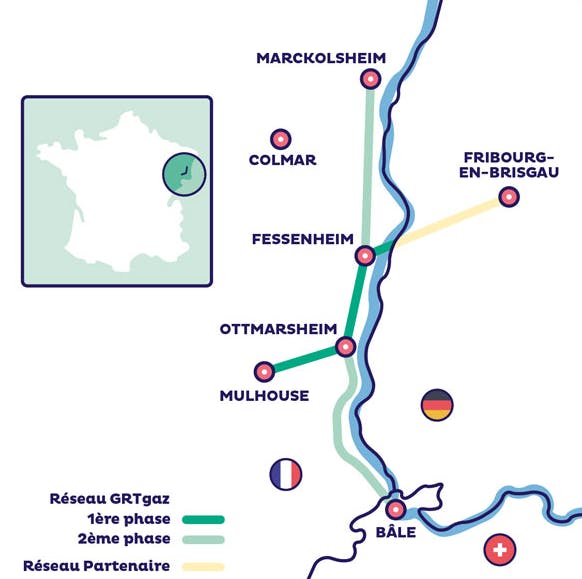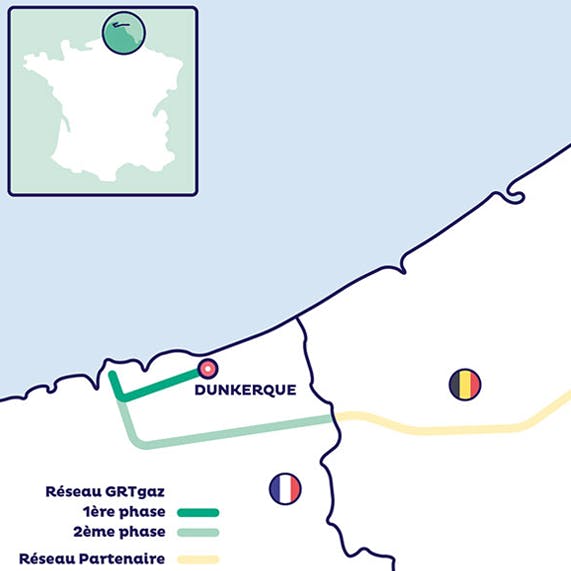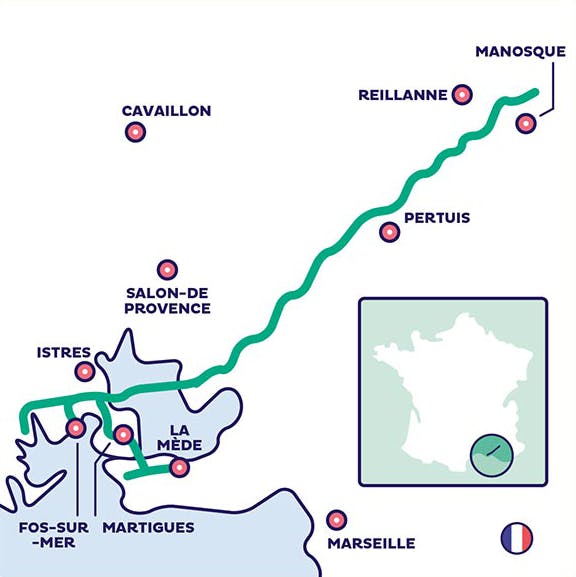Development of hydrogen transmission projects
GRTgaz is continuing with its commitment to developing renewable or low-carbon hydrogen transmission projects.
The three themes of GRTgaz’s hydrogen development strategy are as follows:
- developing open-access hydrogen transmission networks in France’s main industrial basins: these areas of high CO2 emissions combine a significant need for decarbonisation with major energy demand and low-carbon hydrogen production capacity.
- gradually extending coverage across the country and reinforcing continuity of supply by connecting industrial basins together and linking production and consumption zones with hydrogen storage.
- working to develop European interconnectors by organising and managing cross-border initiatives and the H2MED 30 European corridor project. The ultimate goal is to contribute to the creation of a single European hydrogen market that is competitive, safe and accessible.
H2 PROJETS
| Main achievements in 2023 and next steps | ||
|
mosaHYc linking the Grand Est region of France with the German Saarland
|
Project launch: March 2020 Goal:to develop the first European hydrogen network by converting gas pipelines between Moselle, Saarland and Luxembourg No. of km: 90 km of hydrogen network (with 70 km of converted gas pipelines) between Völklingen, Perl (Saarland), Bouzonville and Carling (Moselle), in partnership with the German transmission operator CREOS De Transmission capacity: 65,000 t/year of hydrogen Commissioning: from 2027 Project stakeholders: the European economic interest group “Grande Region Hydrogen”, including 12 industrial partners from across the hydrogen value chain. The MosaHYc project receives financial support from Ademe |
Investment decision taken in December 2023 Extension of mosaHYc under discussion Award of an Ademe technology building block grant |
|
RHYn(Rhine HYdrogen Network), in the Mulhouse area
|
Project launch: 2021 Goal: to decarbonise energy uses (chemical industry, fertiliser production and transport – road, river, air) and boost the economic and industrial attractiveness of the regions No. of km: 100 km of hydrogen network (including 60 km of converted pipelines) Transmission capacity: 190,000 t/year of hydrogen Commissioning: 2028/2029 Project stakeholders: producers and consumers in the area and the adjacent network operators Terranets, bnNETZE and IWB |
Launch of the open season, which demonstrated the market’s interest Integration of the project into the ZIBaC submission from the Chalampé industrial zone |
|
DHune at the port of Dunkirk
|
Project launch: January 2022 Goal: to decarbonise industrial energy use and boost the economic and industrial attractiveness of the region No. of km: 25 km of hydrogen network Transmission capacity: between 180,000 and 300,000 t/year Commissioning: 2027 Project stakeholders: the Hauts-de-France region, the Dunkirk port authority, the Dunkirk urban district council, producers and consumers in the area |
Feasibility study conducted, ZIBaC funding obtained Basic engineering begins in early 2024 |
|
HYnframed in the Fos industrial zone and the surrounding area
|
Project launch: October 2021 Goal: to decarbonise energy use (steel industry, petrochemicals and refining) and boost the economic and industrial attractiveness of the regions No. of km: 150 km of hydrogen network Transmission capacity: between 200,000 and 300,000 t/year of hydrogen Commissioning: 2028 Project stakeholders: Regional industrial and institutional ecosystem. The feasibility study was carried out with financial support from Ademe. The basic engineering studies have begun, co‑funded by the producers and consumers with the most mature projects, Ademe (SYRIUS programme) and the region |
Funding from ZIBaC and the regional authority Launch of the basic study at end of 2024 |








